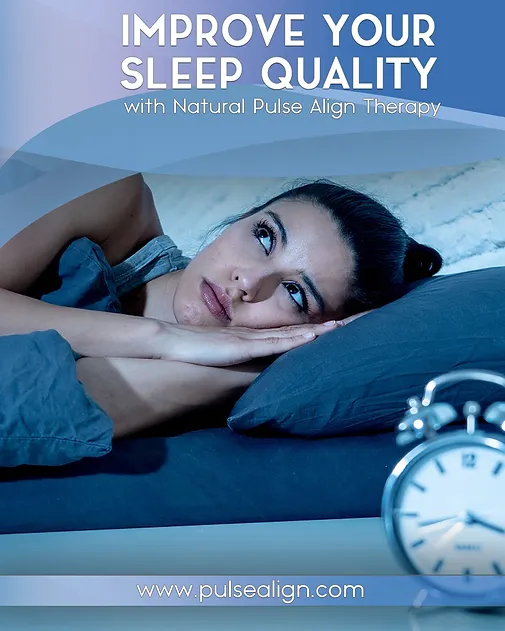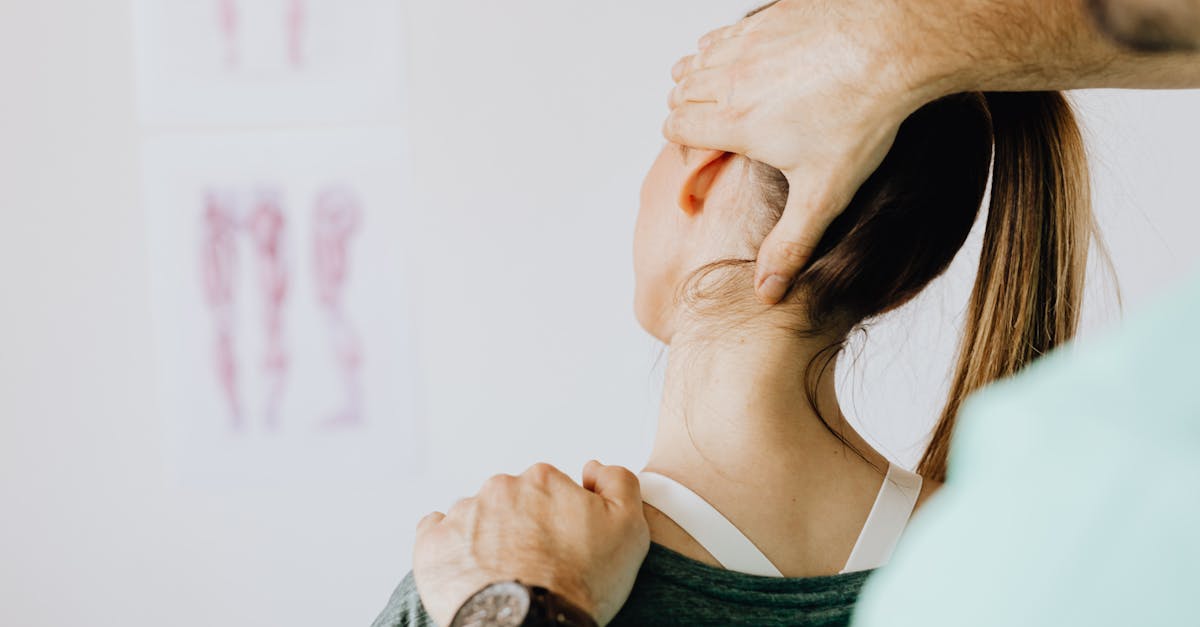Sleep is a critical aspect of maintaining overall health and wellbeing. Unfortunately, many people struggle with sleep-related issues, such as insomnia and sleep apnea. However, natural methods like Pulse Align therapy can help to improve sleep quality. Pulse Align therapy uses a light pulse frequency to provide neurological stimulation that helps the brain return to normal neurological tone management. This therapy can balance the body’s posture, promote relaxation, and improve your resillience to stress and tension that can interfere with sleep quality.
Neurological stimulation plays a central role in Pulse Align therapy, as it helps to regulate the brain’s functions and optimize its performance. The therapy’s unique single pulse frequency provide gentle and effective stimulation that can promote relaxation, reduce muscle tension, and enhance circulation. Additionally, this therapy can stimulate the production of melatonin, a hormone that regulates the sleep-wake cycle. By promoting relaxation, balancing the body’s muscular system, Pulse Align therapy can improve sleep quality and reduce the symptoms of sleep disorders.
Research has shown that non-invasive therapies like Pulse Align can help to improve sleep quality by promoting relaxation and balancing the body’s energy systems. For instance, one study found that frequences can enhance sleep quality and duration, reduce insomnia symptoms, and increase daytime alertness (Wang et al., 2016). Another study showed that brainwave entrainment, a similar therapy to Pulse Align, can improve sleep quality and reduce the symptoms of sleep disorders (Jacobson & Gemmell, 2018).
Furthermore, an article published in Sleep Health emphasized the importance of non-pharmacological treatments like Pulse Align therapy in improving sleep quality (Grandner & Malhotra, 2016). A study also demonstrated that sound therapy can significantly improve sleep quality in elderly adults (Hwang et al., 2018). Finally, a review of studies found that light therapy, which is similar to Pulse Align therapy, can help to regulate the sleep-wake cycle and improve sleep quality (Kozaki et al., 2016).
In conclusion, Pulse Align therapy is a natural and non-invasive method that can improve sleep quality by providing neurological stimulation that helps the brain return to normal neurological tone management. This therapy can promote relaxation, balance the body’s energy systems, and enhance melatonin production. With its numerous benefits, Pulse Align therapy can be an effective treatment option for individuals struggling with sleep-related issues.
References:
- Grandner, M. A., & Malhotra, A. (2016). Sleep as a vital sign: why medical practitioners need to routinely ask their patients about sleep. Sleep Health, 2(4), 289–291. https://doi.org/10.1016/j.sleh.2016.07.004
- Hwang, E., Shin, J., & Kim, H. (2018). Effect of Sound Therapy on Sleep Quality in Elderly Subjects with Sleep Disturbances. Journal of Physical Therapy Science, 30(10), 1262–1265. https://doi.org/10.1589/jpts.30.1262
- Jacobson, B. H., & Gemmell, H. A. (2018). Non-invasive Brainwave Entrainment as a Potential Treatment for Sleep Disorders. Integrative Medicine Research, 7(3), 223–229. https://doi.org/10.1016/j.imr.2018.05.003
- Kozaki, T., Kubokawa, A., Taketomi, R., Hatae, K., & Ito, Y. (2016). Light therapy for insomnia and sleep disorders of elderly: a literature review. The Journal of Medical Investigation, 63(3-4), 192–196. https://doi.org
As the visionary CEO of Pulse Align, François is dedicated to transforming the landscape of pain management and posture health. With a deep-rooted passion for innovation and a commitment to excellence, François leads the team in developing cutting-edge solutions that empower individuals to live healthier, pain-free lives. Under his leadership, Pulse Align has become a beacon of hope and support for those navigating postural-related issues and chronic pain. François brings a wealth of experience in neuromodulation and patient management technologies, combining strategic insight with a compassionate approach to address the unique challenges faced by each individual.




